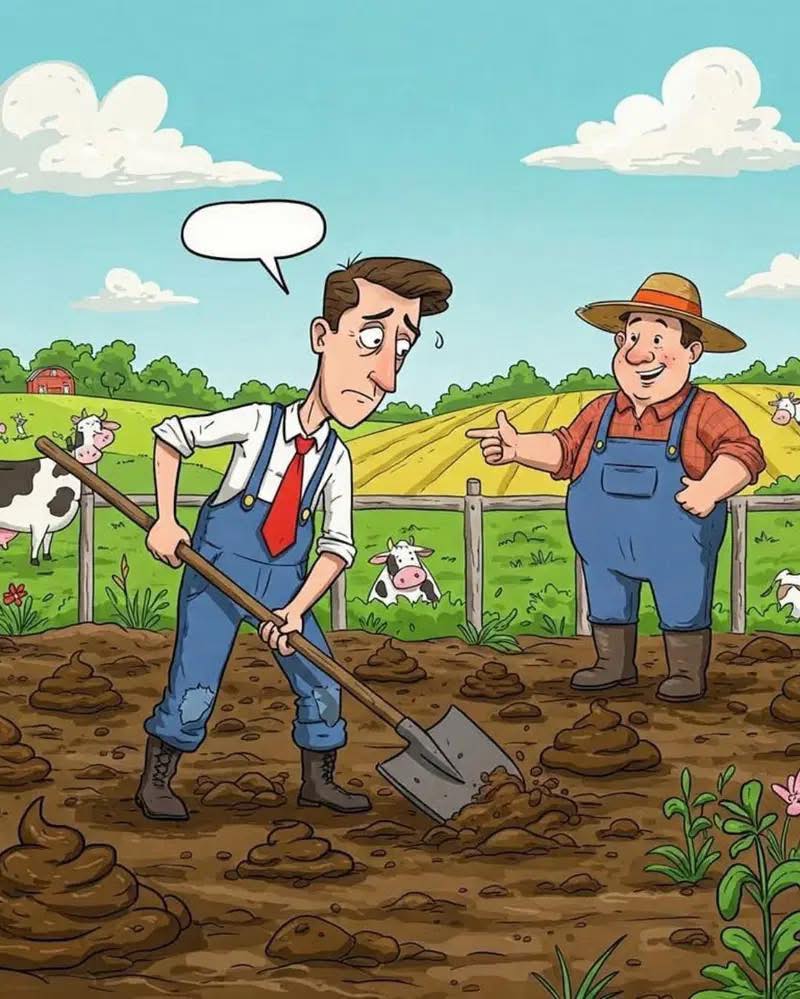After suffering a heart attack, the manager of a large corporation was advised by his doctor to spend a few weeks relaxing on a farm. But just days into his stay, boredom set in, so he asked the farmer for something to do. The farmer, amused, assigned him the dirtiest job—cleaning up all the cow manure—thinking it would take the city man at least a week. To his surprise, the manager completed it in just one day, leaving the farmer both impressed and baffled.
The next morning, the farmer gave him an even tougher task: chopping off the heads of 500 chickens. Expecting the manager to quit or take forever, he again watched in disbelief as the task was finished by day’s end. But on the third day, the farmer gave him what seemed like a simple job—sorting a bag of potatoes into small and large piles. Hours passed, and when evening came, the farmer saw that nothing had been done. The two boxes remained empty while the manager sat still, staring at the pile.
Confused, the farmer asked, “How could you finish such hard jobs before, but not this one?” The manager sighed and said, “All my life, I’ve been cutting heads and dealing with crap—but now you want me to make decisions!” It was a joke, but it struck a truth. Physical labor wasn’t the issue—decision-making was where the stress really lived for him. The farm had unintentionally mirrored the challenge of corporate life in a funny, ironic twist.
In another tale of management, a new office manager was given three envelopes by his predecessor, to open only in crisis. When trouble hit, he opened the first: “Blame your predecessor.” Months later, another crisis came, and envelope two said, “Reorganize.” It worked. But during his third crisis, the final envelope simply read: “Prepare three envelopes…” And just like that, the cycle of leadership, stress, and survival continued.
